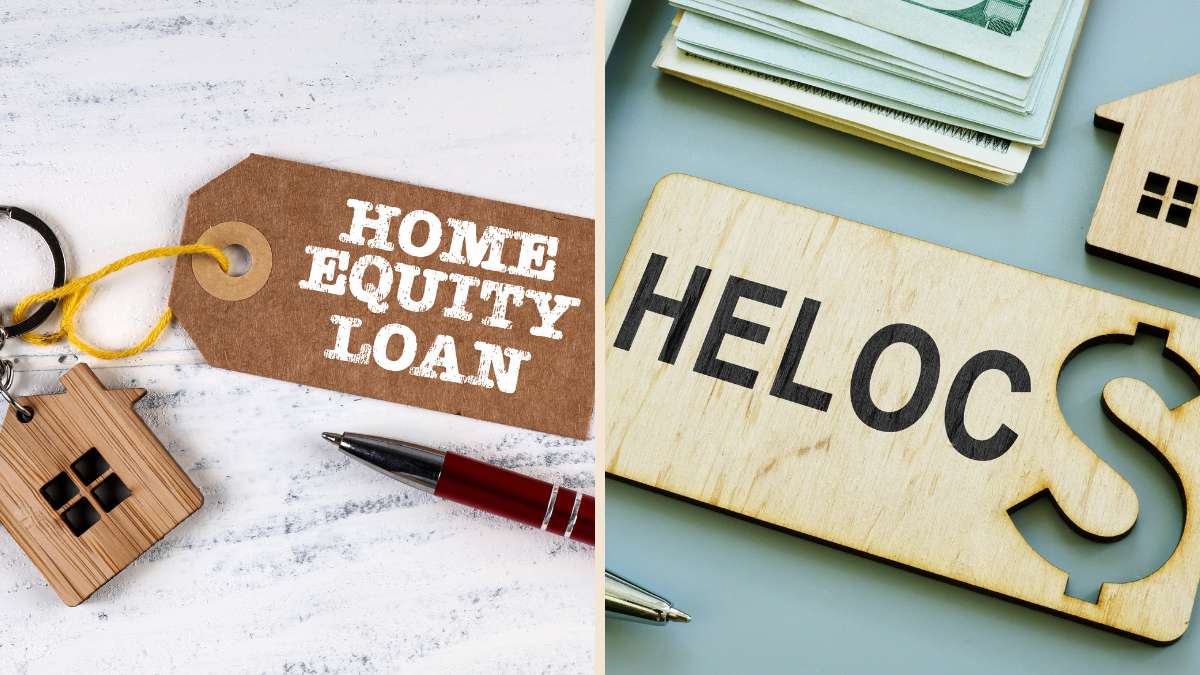Evaluating Your Options: Home Equity Loans vs. HELOCs

When it comes to financing significant expenses, homeowners often turn to the equity in their homes as a valuable resource. Home equity loans and Home Equity Lines of Credit (HELOCs) are two popular options that allow individuals to leverage the value of their homes to secure funds for various purposes. In this article, we will delve into the distinctions between home equity loans and HELOCs, providing insights to help you make an informed decision when considering these financial instruments.
Understanding Home Equity:
Before delving into the nuances of home equity loans and HELOCs, it’s crucial to understand the concept of home equity, especially concerning securing a home loan. Home equity represents the difference between the current market value of your home and the outstanding balance on your mortgage. Essentially, it signifies the portion of the property that you genuinely own, playing a pivotal role in the process of obtaining a home loan. Both home equity loans and HELOCs leverage this equity as collateral, positioning them as secured loans with advantageous interest rates when compared to unsecured alternatives, making them attractive choices for individuals in search of a secure and beneficial home loan solution.
Home Equity Loans:
A home equity loan, also known as a second mortgage, is a lump-sum loan that allows you to borrow a fixed amount against the equity in your home. The interest rates for home equity loans are typically fixed, providing predictability in monthly payments. This stability can be advantageous for those who prefer a structured repayment plan and want to avoid the potential fluctuations associated with variable interest rates.
One of the primary advantages of a home equity loan is that you receive the entire loan amount upfront, making it ideal for one-time expenses like home renovations or debt consolidation. The loan is repaid over a predetermined period, usually with fixed monthly payments. However, it’s essential to carefully assess your financial needs and ability to make consistent payments before opting for a home equity loan.
HELOCs (Home Equity Lines of Credit):
In contrast to home equity loans, HELOCs provide a flexible and revolving line of credit. Similar to a credit card, a HELOC allows you to borrow against your home equity up to a predetermined limit. What sets HELOCs apart is the ability to borrow as much or as little as needed, making them suitable for ongoing or variable expenses such as education costs or unpredictable medical bills.
One key feature of HELOCs is the variable interest rate, which means that your payments may fluctuate based on market conditions. While this variability introduces an element of risk, it can also result in lower initial interest rates compared to fixed-rate home equity loans. Additionally, HELOCs often come with a draw period during which you can access funds, followed by a repayment period where you can no longer borrow but must repay the outstanding balance.
Choosing Between Home Equity Loans and HELOCs:
The decision between a home equity loan and a HELOC ultimately depends on your specific financial goals and circumstances. If you prefer a lump-sum amount with a fixed interest rate for a specific purpose, a home equity loan may be more suitable. On the other hand, if you require flexibility in borrowing and can manage variable interest rates, a HELOC might align better with your needs.
It’s crucial to consider factors such as the purpose of the loan, your repayment ability, and your comfort level with interest rate fluctuations. Consulting with a financial advisor can provide personalized guidance and ensure that you make an informed decision based on your unique situation.
Conclusion:
In assessing your choices for utilizing home equity in the context of obtaining a home loan, it is crucial to comprehend the distinctions between home equity loans and HELOCs. Each option presents a unique set of advantages and considerations, catering to diverse financial preferences and needs. Through a meticulous evaluation of your goals and discussions with financial experts, you can make a well-informed decision that aligns with your financial objectives, ultimately contributing to the enhancement of your overall financial well-being in the realm of home loans.
Reach out to the Soren Financial team for top-notch guidance on home loans!
